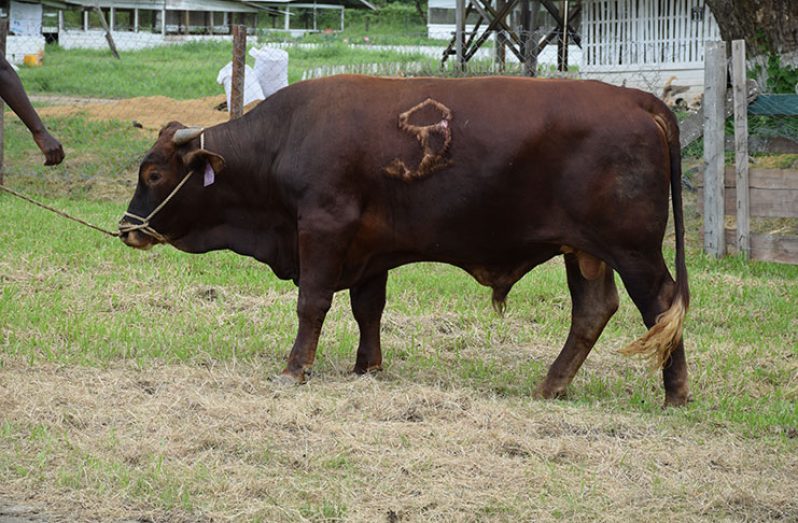THE local cattle industry is being boosted with the importation of animal stock to improve the genetics of locally available beef and dairy cattle.
In an exclusive interview with the Department of Public Information (DPI), Chief Executive Officer of the GLDA, Nigel Cumberbatch said, “We were also able, in 2017, to import seven breeding bulls. Four beef bulls and three dairy bulls for our large ruminant genetic improvement programme.”
Additionally, Cumberbatch said while the agency will not stop the importation of semen altogether, the imported bulls will reduce the GLDA’s dependence on imported semen for its artificial insemination programme to assist farmers. “The demand for semen cannot be met by the bulls that we have at the present time, but certainly, they will assist in reducing the amount of semen that we at the present time are importing.”
According to the CEO of the country’s leading livestock agency, farmers will soon benefit from extracted semen from the bulls. “In 2018, we will be extracting semen from the bulls that we have imported. The bulls have been trained and we are taking them through the training process of semen extraction and by mid-2018, they will be fully involved in the extraction of semen.”
The agency is continuing work to ensure better performance of calves produced at its Ebini outstation. “Our breeding season begins from the 15th December to 15th March. That is the time we will put in our breeding bulls with the cows. We do this because it enables the animals to calve during the dry period of the year–September, October, November–and it gives the calves a better beginning so that they don’t calve during the rainy period and slow their growth,” Cumberbatch said. GLDA is the agency which has responsibility for the monitoring of developments in the country’s livestock sector. It provides technical support and advisory services to all ten administrative regions of the country through a network of trained extension officers. (DPI)




.jpg)











